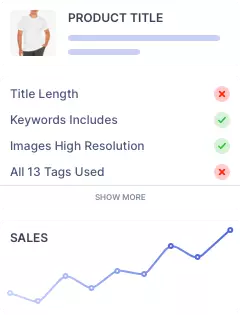Business Plan: What It Is and How To Write One
Every successful business owner knows that having a solid vision for their business is critical to generating sales and growing. While multiple other elements contribute to this growth, this ideation process, which involves laying out a roadmap for one’s business, can act as a foundation for one’s business.

This is precisely why a business plan is one of the first things an entrepreneur needs to create to ensure that their business is indeed on the right track to becoming what they envisioned it to be from the initial stage. If you are also someone who has been hoping to start your own business, then one question that may cross your mind right now is-
What Exactly Is A Business Plan?
A business plan is a comprehensive document that outlines a company’s objectives and the strategies it intends to employ to achieve its goals. It can be a physical or digital document, serving as a detailed roadmap for the business. This roadmap addresses vital aspects such as marketing, logistics, management, and finances- all of which are crucial information to potential investors for your business, whether they be your acquaintances or others. It is a fundamental tool used by some of the world’s largest brands and is highly recommended for every business, providing a solid foundation.
For instance, let’s consider John, who has a business idea of selling a product on Etsy. While signing up as a seller is straightforward, he will benefit greatly from having a clear framework for how his business will operate. A business plan enables him to articulate his ideas in an organized and systematic manner, offering a reference point to manage his operations efficiently.
A business plan is pertinent for businesses of all stages, not just new ventures. Ideally, the program should be periodically reviewed and updated for achieved goals or objective shifts. An established business may create a new business plan for a new strategic direction. In any case, a business plan is an indispensable prerequisite that every type of business should establish before embarking on its entrepreneurial journey.
How to Write a Business Plan
Drafting a business plan, often presumed to be straightforward for start-ups, can entail more complexity than meets the eye. Specific programs may be necessary for new branches of your business, even when a main business plan is already established.
Confused? Well, here are some examples of the types of business plans that you may benefit from knowing about before understanding how to write a business plan:
- Start-Up Business Plans: These outline steps to initiate a new enterprise, covering company details, product/service description, market analysis, and financial projections.
- Internal Business Plans: These are tailored for specific internal audiences (e.g., marketing teams) to assess proposed projects, focusing on current company status, project costs, and potential returns.
- Strategic Business Plans: Offers a high-level view of company goals and strategies for achieving them, encompassing elements like vision, mission, success factors, and implementation schedule.
- Feasibility Business Plans: Addresses whether a business venture is viable by evaluating potential customer base, profitability, and required capital.
- Operations Business Plans: Internal plans detailing company operations, including implementation milestones and employee responsibilities.
- Growth Business Plans: Elaborates on proposed growth strategies, providing comprehensive details for potential investors if capital is needed.
Business plans can also be developed later in a company’s journey to expand into a new venture or similar purposes. So now, with this understanding of business plans, let’s delve into crafting one.
When writing a business plan, the initial step involves determining its core components. A clear grasp of your business’s nature is crucial to do this effectively. Since each business or company may have a unique structure, there are various templates to follow. Nevertheless, key elements usually remain consistent and should be integrated as content. These encompass:
- Executive Summary – A concise overview highlighting the business’s mission, vision, and key objectives.
- Company Description – Detailed information about the e-commerce venture, including its history, mission, values, and legal structure.
- Market Analysis – In-depth research and insights into the industry, target market, analysis of competition, and emerging trends.
- Product or Service Description – A detailed description of the offerings, their unique value proposition, and how they comply with the needs of the target audience. An AI writer can help in this regard.
- Marketing Strategy – A strategic plan outlining how the business will promote and sell its products or services, including digital marketing, advertising, and customer acquisition channels.
- Financial Projections – Detailed revenue forecasts, expenses, profits, and cash flow, providing a clear financial roadmap for the business.
- Appendix – A supplementary section containing supporting documents and data, such as market research reports, financial statements, and other relevant information, bolsters the business plan’s central areas.
Remember that this is just one of the diverse structural approaches you can employ when creating your business plan. Crafting and implementing a business plan can be demanding for any business owner, even seasoned entrepreneurs. That’s why it’s wise to lean on advanced tools to automate several aspects of your business and bolster its growth. For instance, if you’re venturing into the Etsy marketplace, a tool like Roketfy can be invaluable.
Roketfy is an innovative and data-driven platform that empowers Etsy sellers to boost their sales. It provides:
- A suite of smart tools and services.
- Streamlining processes like listing optimization.
- Product research.
- Competitor analysis.
The ideal business entrepreneur appreciates the necessity of having a clear vision for their company to generate sales and grow. While many variables contribute to such growth, the ideation process, which entails creating a roadmap for one’s firm, can serve as an initial basis.
If you feel like this is something you can use for your business, prep your business plan and get ready to elevate your sales potential with Roketfy by sign up today!




